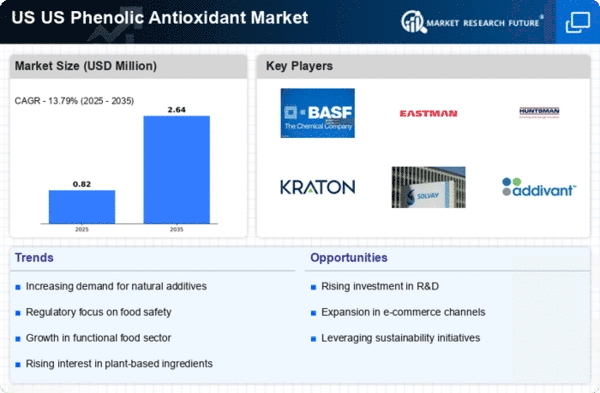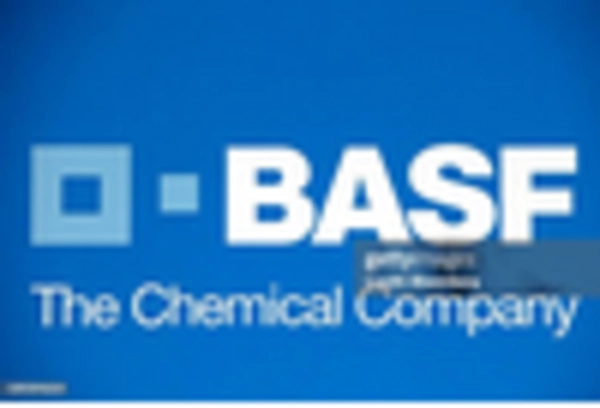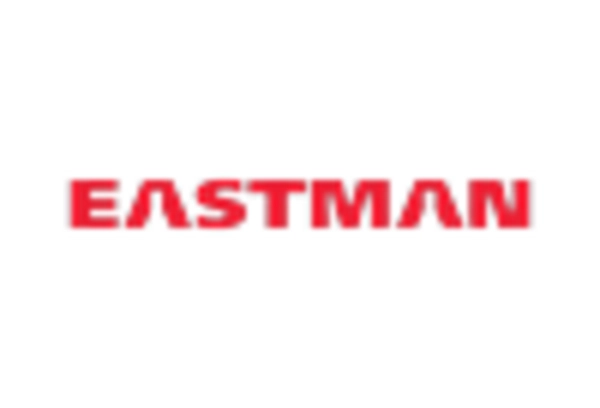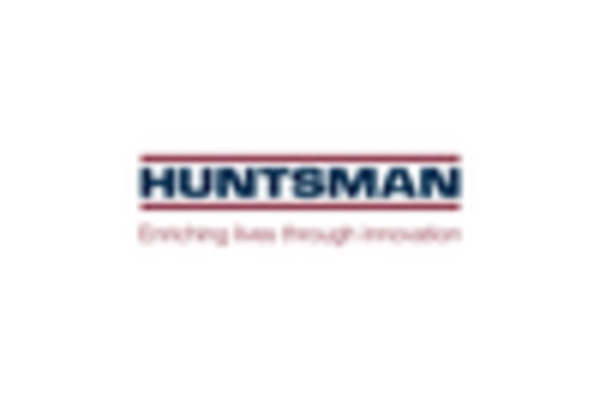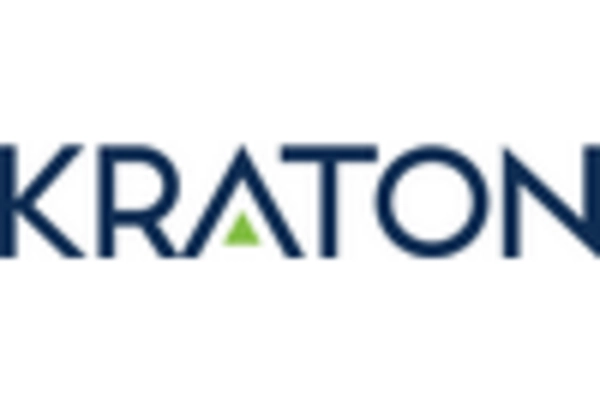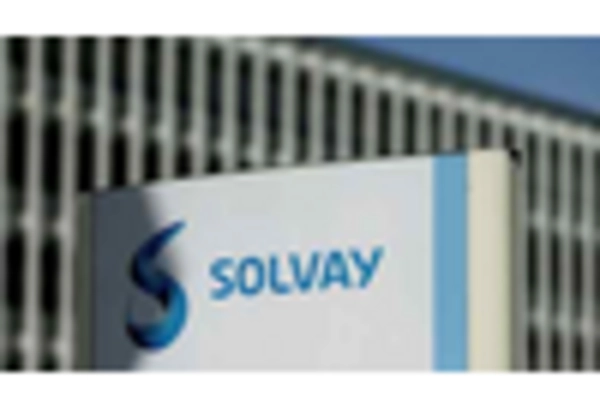Growing Health Consciousness
The US Phenolic Antioxidant Market is experiencing a surge in demand driven by increasing health consciousness among consumers. As individuals become more aware of the detrimental effects of oxidative stress and its link to chronic diseases, the preference for products containing phenolic antioxidants is likely to rise. This trend is reflected in the food and beverage sector, where manufacturers are incorporating these antioxidants to enhance product shelf life and nutritional value. According to recent data, the market for natural antioxidants is projected to grow at a compound annual growth rate (CAGR) of approximately 7% over the next five years, indicating a robust opportunity for phenolic antioxidants in various applications. This growing awareness is expected to propel the US Phenolic Antioxidant Market forward, as consumers increasingly seek healthier options.
Rising Demand in Nutraceuticals
The US Phenolic Antioxidant Market is significantly influenced by the burgeoning demand for nutraceuticals. As consumers increasingly seek dietary supplements that promote health and wellness, phenolic antioxidants are gaining traction due to their potential health benefits, including anti-inflammatory and anti-cancer properties. The nutraceutical sector is projected to grow at a CAGR of around 8% in the coming years, with phenolic antioxidants playing a crucial role in this growth. This trend is further supported by scientific research highlighting the efficacy of these compounds in improving overall health. As a result, the integration of phenolic antioxidants into nutraceutical formulations is likely to drive the US Phenolic Antioxidant Market, catering to a health-conscious consumer base.
Expansion in Food and Beverage Applications
The US Phenolic Antioxidant Market is witnessing significant expansion within the food and beverage sector. With the rising demand for natural preservatives, manufacturers are increasingly incorporating phenolic antioxidants to enhance the stability and quality of their products. For instance, the use of these antioxidants in oils and fats helps prevent rancidity, thereby extending shelf life. Market data suggests that the food and beverage segment accounts for over 40% of the total demand for phenolic antioxidants in the US. This trend is likely to continue as consumers favor products that are not only safe but also retain their nutritional integrity over time. Consequently, the expansion of food and beverage applications is poised to be a key driver for the US Phenolic Antioxidant Market, fostering innovation and product development.
Technological Advancements in Extraction Methods
The US Phenolic Antioxidant Market is benefiting from technological advancements in extraction methods, which enhance the efficiency and yield of phenolic compounds from natural sources. Innovations such as supercritical fluid extraction and enzymatic extraction are becoming increasingly prevalent, allowing manufacturers to obtain high-quality antioxidants with minimal environmental impact. These advancements not only improve the quality of the final product but also reduce production costs, making phenolic antioxidants more accessible to a broader range of industries. As these technologies continue to evolve, they are expected to bolster the US Phenolic Antioxidant Market by facilitating the development of new applications and formulations that meet consumer demands for natural and effective ingredients.
Increased Regulatory Support for Natural Ingredients
The US Phenolic Antioxidant Market is experiencing a favorable regulatory environment that supports the use of natural ingredients in various applications. Regulatory bodies, such as the FDA, are increasingly recognizing the safety and efficacy of phenolic antioxidants, which encourages manufacturers to incorporate these compounds into their products. This regulatory support is particularly evident in the food and beverage sector, where there is a growing emphasis on clean label products. As consumers demand transparency and natural ingredients, the US Phenolic Antioxidant Market is likely to benefit from this trend, as companies strive to comply with regulations while meeting consumer expectations for health and safety.


